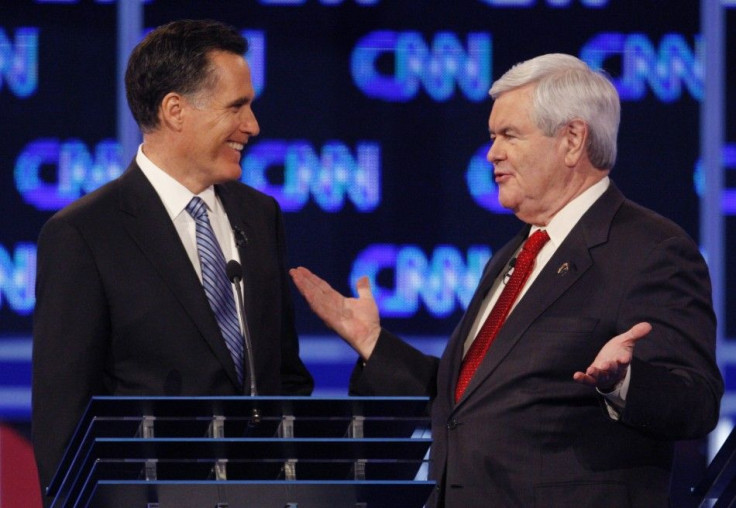Florida Polls: Romney Is 14 Points More Electable than Gingrich

With the Florida primary five days away, all eyes are on the battle between Newt Gingrich and Mitt Romney.
Gingrich shot to the top of the polls in Florida after his upset victory in South Carolina Saturday, erasing a nearly 20-point deficit almost overnight. But Romney has regained strength in the past two days, and two new polls -- one from Insider Advantage and one from CNN/Time -- show him once again in the lead.
Perhaps more significantly, a Suffolk University poll released late Wednesday showed Romney with a major advantage over Gingrich in the general election.
According to the poll, Romney would beat President Barack Obama in Florida by 5 percentage points, 47-42 percent. Gingrich, on the other hand, would lose to Obama by 9 points, 49-40 percent.
There is plenty of time for those numbers to change, but they give a major boost to the electability argument on which Romney's campaign has relied so heavily -- the argument it seemed to have lost in South Carolina, where exit polls showed that 51 percent of voters who cared primarily about electability voted for Gingrich. Only 37 percent of those voters voted for Romney.
Charles Zelden, a legal historian and elections expert at Nova Southeastern University in Fort Lauderdale, Fla., said South Carolina voters may have concluded that Gingrich was the most electable candidate on the basis of his no-holds-barred debate performances, but that doesn't mean his style will play well in other states -- and other experts agree.
He's electable in South Carolina. I'm not so sure that's the way people in Florida are going to go, Zelden said, noting that nearly a third of registered voters in Florida are independents.
The difference in electability between Romney and Gingrich was starkest among independents. Obama beat both Romney and Gingrich in that category, but the margins were very different: Romney lost by 6 percentage points among independents, while Gingrich lost by 27 percentage points.
If Florida is one of six key states that swing the national election, independents in Florida hold that key, and this poll suggests that Newt won't be able to secure Florida for his party, said David Paleologos, director of the Political Research Center at Suffolk University in Boston.
Florida has voted for the overall winning candidate in all but one presidential election since 1972. The one exception was 1992, when it voted for George H.W. Bush over Bill Clinton. This is partly because many Florida voters do tend to vote on the basis of electability, but also because its electorate is politically and ethnically diverse, and thus more representative than South Carolina's electorate of the country as a whole.
If I want to drive from where I live [in Fort Myers] all the way to Pensacola, it's a 12-hour drive without leaving the state. It's a massively large state, Zelden said. It's also a very diverse state. This is one of the few states where you know you're going to get a large number of Latino voters, but their concerns don't always mesh well with the social conservatives in North Florida, which is ideologically closer to the Deep South than it is to South Florida.
Zelden said it was impossible to predict who would win Florida. It will depend, he said, almost entirely on who turns out.
Is it North Florida voters who come and vote? They're more likely to vote for Gingrich, he said. Are they people from the cities, the businessman-type Republicans? They're more likely to vote for Romney.
But the electability question will also play a role -- and the bigger that role is, the better it is for Romney, despite the exit polls in South Carolina.
If it comes down to, 'I'm going to vote for the person who's closest to who I want Republicans to be,' then Gingrich will probably get it, Zelden said. If it's, 'I'm going to vote for the person who, flawed though he is, has the best chance of winning the election and going after Obama,' then Romney.
© Copyright IBTimes 2025. All rights reserved.





















